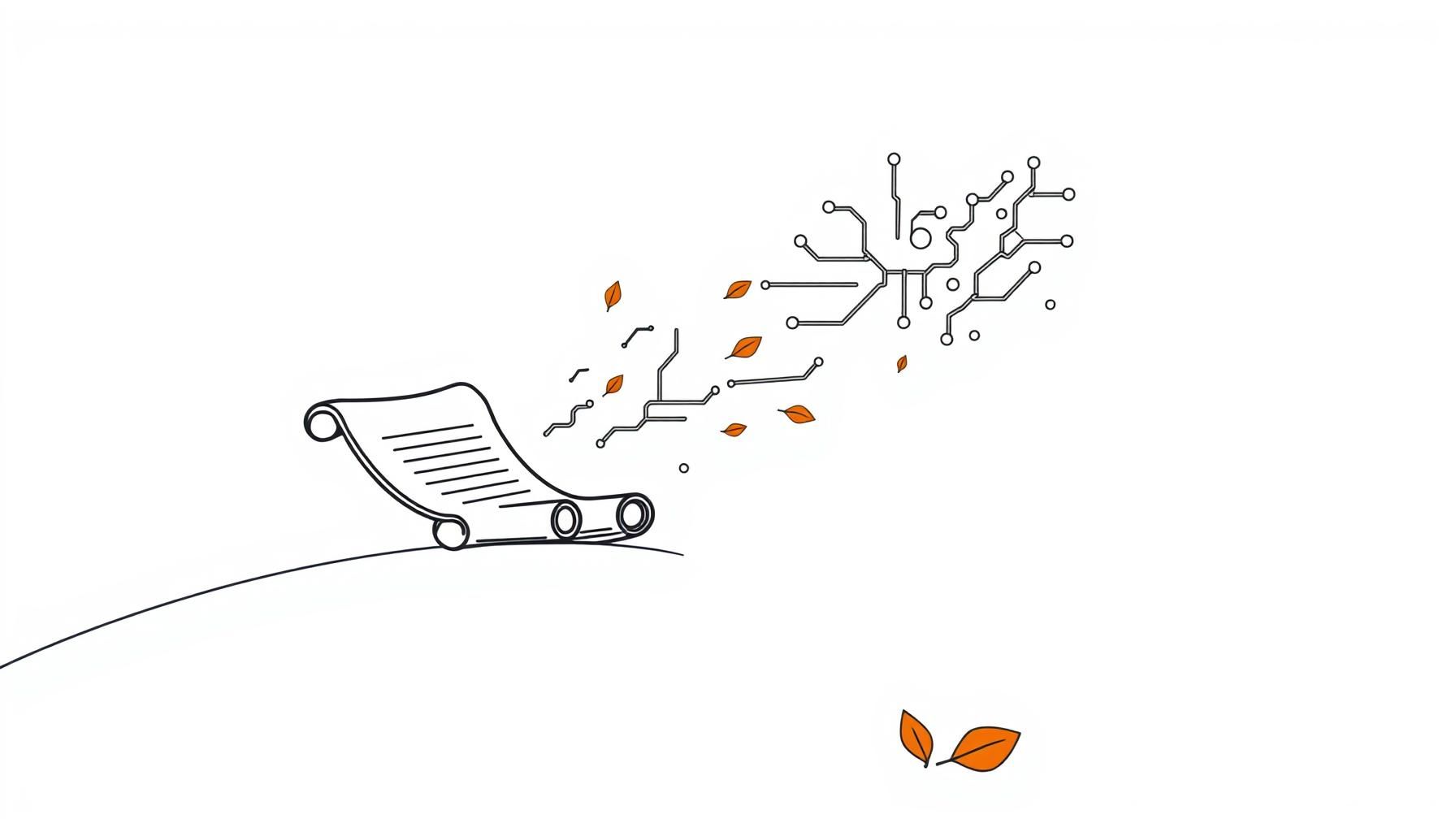
The air is thick with that late-summer warmth, the kind that makes you think about seasons changing. Watching my daughter chase fireflies in the park, her laughter echoing in the clear evening sky, it’s impossible not to wonder about the world she’ll grow into. We prep them for kindergarten, then middle school, then… what? I just stumbled upon some news that completely rocked my world, suggesting the whole idea of “university” as we know it is about to go through a mind-blowing transformation toward AI-driven education. And honestly? It’s got me buzzing—can you feel it too? We’re not just talking about a few new online classes; we’re talking a total reinvention.
Is AI in Education the Next Internet-Level Revolution?
Okay, let’s just pause for a second and let that sink in. Some of the brightest minds are saying that the changes heading for higher education are comparable to the dawn of the internet. That’s HUGE! Remember when the internet first showed up? It felt like magic, and now we can’t imagine life without it. This is THAT level of change. A Deloitte Insights report calls it a “seismic shift,” and I can feel the ground moving already. It’s not just about adding new gadgets to old classrooms. It’s about tearing down the old walls and building something entirely new. It’s like we’ve been using a map to navigate, and suddenly someone hands us a teleportation device. The destination might be the same—a great education—but the journey is about to become unbelievably different.
How Will Personalized Learning Paths Reshape Education?
This is the part that gives me goosebumps. For so long, education has been a one-size-fits-all conveyor belt. You get on, you move at the same speed as everyone else, and you hope for the best. But what if it wasn’t like that? What if learning could be as unique as your child’s own fingerprint? That’s exactly what’s on the horizon with emerging personalized learning paths. A recent Forbes article describes a future of self-paced learning where students move forward only when they’ve truly mastered a subject. YES! Think about it: no more being pushed ahead when you’re struggling or held back when you’re ready to fly. It’s about building a strong foundation, brick by brick, ensuring every concept is solid before adding the next. This isn’t just about being more efficient; it’s about being more compassionate, more effective, and truly honoring each student’s individual journey. It’s learning that fits the learner, not the other way around. But how do we translate mastery into real-world magic?
Why Real-World Skills Trump Standardized Tests Now?
Let’s be real: we’ve all crammed for a test, aced it, and then forgotten everything a week later. The news highlights a massive flaw in our current system: tests are often just a “proxy for learning,” not a real measure of it. The subjectivity of grading, the pressure of a single exam… it’s a flawed system. But the future looks different! The focus is shifting from what you can memorize to what you can do. Imagine a world where our kids graduate with a portfolio that truly demonstrates their competence, giving employers a crystal-clear picture of their future-proof skills. This is about proving mastery in a practical way. It’s like instead of just getting a certificate that says you can cook, you actually prepare a fantastic meal for the world to taste. That’s a change that builds real confidence and prepares them for a future where skills matter more than scores. What everyday moment today could become their portfolio-worthy skill tomorrow?
What’s Our Role as Parents in This New Learning Era?
With all this change, it’s easy to wonder, “So what do we do NOW?” Paul LeBlanc, president emeritus of Southern New Hampshire University, puts it perfectly: the knowledge economy is going through a “radical reinvention.” This means our kids need a fresh toolkit—packed with creativity and grit! And guess what? It’s not about drilling them with facts or signing them up for a million classes. It’s about stoking the flames of their natural curiosity! When your little one asks “why?” for the hundredth time, that’s not an annoyance—that’s training! That’s them building the single most important muscle for the future. Our role is shifting from being a dispenser of information to being a guide for their adventures in learning. We get to be their Chief Curiosity Officers, their co-explorers. As Stanford professor Bryan Brown pointed out in a Stanford report, we’ve long known that real learning happens through powerful discussions and exploration, and now we finally have tools that can support that on a massive scale.
Ready to Embrace This Education Adventure Together?
Of course, big change can feel a little scary. The research points out that many faculty members are more apprehensive than excited. And that’s totally understandable! It’s like being a seasoned ship captain who is suddenly given a spaceship—the controls are different, the destination is the same, but the journey requires a new mindset. But as parents, we have an incredible opportunity to frame this as an adventure. It’s a chance to raise a generation that is adaptable, wildly creative, and tough as nails. We can teach them that learning isn’t a chore confined to a classroom, but a lifelong quest filled with wonder. It’s about balancing the amazing new tools with scraped knees from playground tag or ddakji battles, about pairing digital exploration with the joy of a shared family meal. The future? It’s a wide-open field. Our job? Hand them the running shoes and cheer as they sprint! Those fireflies? They’re not just summer magic—they’re proof that even small lights shine brighter when we let them explore the dark.
Source: The Radical Changes AI Is Bringing To Higher Education, Forbes, 2025-08-20 18:18:17
